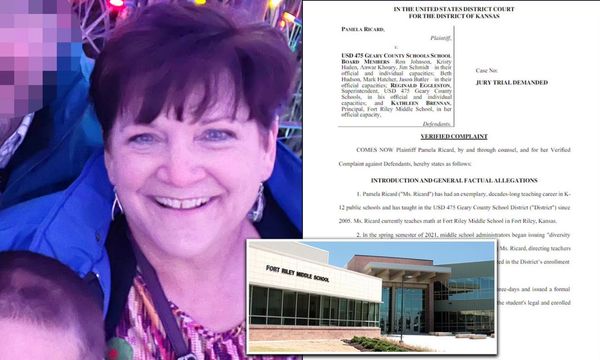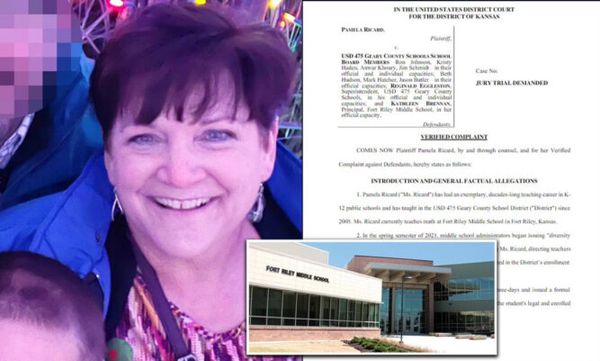The world has seen many changes in recent years, some hailed as progress, while others view them as steps backward. One Kansas teacher, Pamela Richard, found herself in the midst of a heated debate when she stood up for her personal beliefs, despite facing the possibility of suspension.

Working at Geary County Schools in Kansas at the time, Richard chose not to use a preferred pronoun for one of her students, which led to a three-day suspension.
According to Richard, she was suspended “for addressing a biologically female student by the student’s legal and enrolled last name.” The situation arose when a school counselor informed her that one of the students preferred to use a different first name and be referred to by a different gender identity. This student was assigned female at birth.

In an effort to find a compromise, Richard referred to the student as “Miss [legal/enrolled last name]” instead of using the preferred name. Unfortunately, her solution was deemed insufficient, and she was ultimately suspended. The explanation given was that “employees should be aware and make an effort to utilize the pronouns an individual requests to be identified by.”
However, Richard’s conscience was deeply affected by the policy, leading to a lawsuit against the school. The lawsuit argued that the policy violated her religious beliefs as a Christian, which align with the traditional Christian and biblical understanding of human nature and biological sex.

Richard firmly believed that God created human beings as either male or female, with their biological sex fixed from the moment of conception, unable to be changed based on personal feelings or preferences.
In May, Richard took her case to federal court and emerged victorious, receiving a $95,000 award. Her attorney emphasized that she now has the freedom to communicate with parents in a manner that aligns with her conscience without violating it. Additionally, she is no longer required to use pronouns for students that do not correspond with their biological sex. The court ruled against the policy that prevented staff members from disclosing students’ preferred names and pronouns to their parents.
Since the lawsuit’s conclusion, there have been no comments from the school. Pamela Richard’s case exemplifies the ongoing struggles surrounding personal beliefs, individual rights, and the evolving landscape of education.






